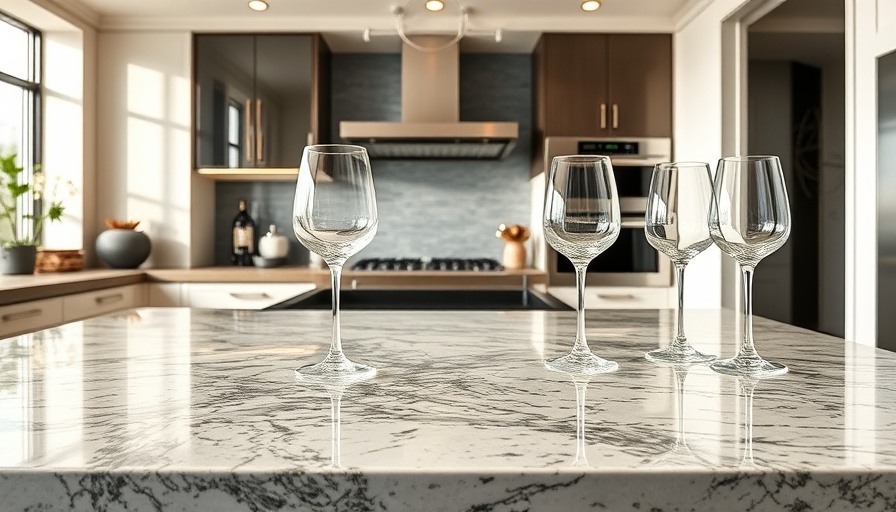
Avoiding Kitchen Countertop Regrets: Essential Insights
The kitchen countertop often acts as the heart of the home—a multifunctional space where family and friends gather, homework gets done, and culinary masterpieces are created. With an average price tag of $80 per square foot and lifespans reaching up to 100 years for materials like granite, the decision surrounding countertop selection demands thoughtful consideration. Making a mistake here could mean living with an aesthetic you regret for decades. Let’s delve into common countertop blunders and how to avoid them.
Understanding Your Material Options
When upgrading a kitchen, choosing the right countertop material is crucial. If you’re an avid cook who frequently uses your kitchen, consider durable options like natural stone, quartz, or solid wood. These materials not only offer stunning looks but also withstand the wear and tear from heavy usage. Conversely, if your cooking habits lean towards convenience meals, lighter materials such as laminate might suffice, as long as they align with your kitchen design.
The Color Dilemma: Striking the Right Balance
The world of countertop colors and finishes can feel overwhelming. With an array of choices available, consider selecting shades that complement your kitchen’s existing design. Dark-colored countertops might obscure minor stains and scratches better than their light counterparts. To future-proof your space, steer clear of overly trendy colors that could clash with your kitchen aesthetics down the road. Instead, opt for shades that are timeless and versatile.
Countertops and Lifestyle Compatibility
Your lifestyle should heavily influence your countertop choice. If your kitchen sees heavy action, look for options that offer heat and stain resistance—an essential factor for busy households. Marble, for example, radiates elegance but requires ongoing care. On the other hand, granite counters provide both beauty and functionality, balancing the demands of the active kitchen with timeless style.
Budgeting: An Essential Step
Before embarking on your countertop journey, establish a budget. By getting quotes from various suppliers, you can gauge what fits within your price range to avoid financial surprises. Understanding the total cost—especially with installation—will also help you make informed decisions. Additionally, inquire about ongoing maintenance expenses, as some materials require specific care to maintain their appeal.
The Importance of Professional Installation
Installing a countertop is not a straightforward DIY task; it can involve heavy and delicate materials. Engaging a professional contractor is an investment that pays off, ensuring proper fitting and installation. Their expertise minimizes the risk of errors and, importantly, offers a labor warranty, providing peace of mind for you as a homeowner.
Conclusion
By being proactive in your countertop selection process—considering material, color, lifestyle compatibility, budgeting, and professional installation—you can avoid the common pitfalls that lead to regret. Elevate your kitchen's aesthetic while ensuring the functionality meets your daily needs. Thoughtful countertop choices can indeed transform your kitchen into both a beautiful and practical space.
 Add Row
Add Row  Add
Add 




 Add Row
Add Row  Add
Add 

Write A Comment